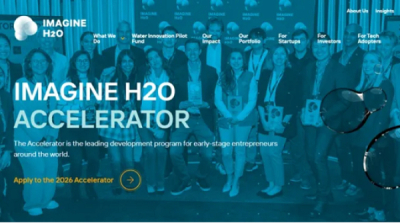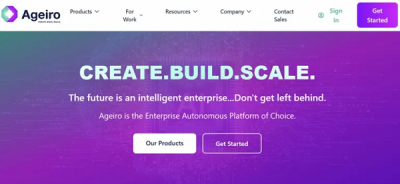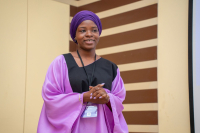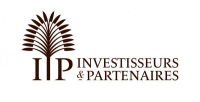-
Gabon signed a partnership with UNCDF to modernize digital financial services and accelerate financial inclusion.
-
Mobile-money transactions reached CFA4,000 billion ($7 billion) in 2024, yet only 30% of adults hold a bank account.
-
The agreement prioritizes interinstitutional coordination and technical training on e-money governance, interoperability and consumer protection.
Gabonese authorities aim to better structure the ecosystem of digital financial services. After announcing a partnership with Visa in May, the government continues its efforts with a new agreement designed to strengthen financial inclusion and sector regulation.
The Ministry of Digital Economy, Digitalization and Innovation (MENDI) announced on Monday, December 8, the signing of a partnership with the UN Capital Development Fund (UNCDF). The collaboration seeks to reinforce the digital-finance ecosystem and support the national ambition to make digital technology a driver of state modernization and economic growth.
The initiative centers on two main priorities. The first focuses on interinstitutional dialogue to harmonize public policies, strengthen coordination between stakeholders and establish a permanent consultation framework for digital financial services. The second targets technical-capacity building through training programs for policymakers on key areas such as e-money governance, service interoperability, data protection, financial literacy and user protection.
Authorities also highlight a specific emphasis on reforms that promote competition among service providers, develop essential digital infrastructure and improve mechanisms for consumer protection.
The partnership builds on the national assessment carried out in 2024 by UNCDF. It comes as Gabon seeks to accelerate financial inclusion, which remains uneven. The country recorded more than CFA4,000 billion ($7 billion) in mobile-money transactions in 2024, along with nearly 368 million operations. Nevertheless, only 30% of adults hold a bank account, and rural populations, women and young people remain the most excluded groups.
Sector players regularly point to several obstacles, including service costs, incomplete interoperability between operators, limited financial literacy and weak user trust in digital tools.
The UNCDF intervention is expected to support reforms that modernize the ecosystem and create a more attractive environment for digital-financial-service providers. By reinforcing institutional cooperation, clarifying operational frameworks and improving infrastructure quality, authorities aim to stimulate innovation, attract new services and expand access to more reliable and affordable payment, savings and transfer solutions.
This article was initially published in French by Samira Njoya
Adapted in English by Ange Jason Quenum
-
ELLES, created in 2022, offers cycle tracking, contraception information and cancer-prevention alerts.
-
The app distributes continuous health content and guides women in daily reproductive-health management.
-
Founder Viviane Oké, a Beninese medical doctor, combines medicine and digital-health strategy to support women’s autonomy.
Viviane Oké introduces a digital solution that strengthens the health autonomy of its users. She deploys a tool that reshapes how women receive support in their daily health management.
Oké, known as Dr. V, is a Beninese medical doctor active in the digital-health sector. She serves as chief executive of ELLES, an application she founded with a group of young Beninese doctors to improve reproductive-health monitoring for women.
ELLES, created in 2022, focuses on reproductive health. The application enables girls and women to track their menstrual cycles and access information on contraceptive methods. It distinguishes natural methods and details their benefits and potential side effects.
The platform also supports breast-cancer prevention by sending alerts at the optimal moment for self-examination and by providing a detailed guide. An integrated news feed delivers a continuous flow of content on the body, sexual health and reproductive health.
Oké graduated from the Faculty of Health Sciences in Cotonou, where she earned her medical doctorate. She also completed a master’s degree in international project management in October 2025 at Senghor University in Alexandria, Egypt.
She worked as a medical translator in 2021 for Smile Train, an international children’s organization. She served in 2022 as a fintech-technology consultant for the GIZ office in Benin. In February 2025, she worked as a physician at Clinique Patte d’Oie in Cotonou.
This article was initially published in French by Melchior Koba
Adapted in English by Ange Jason Quenum
Goodwell Investments is seeking partnerships with revenue-generating companies across Africa. They specifically target enterprises led by African founders that provide essential goods or services with a strong social or environmental impact. Selected companies will receive funding, hands-on operational support, mentorship, and access to an extensive global network. Submissions are due online by Wednesday, December 31, 2025.
The Imagine H2O Accelerator has opened its application window to African water startups. Eligible companies must be under seven years old, have less than $5 million in revenue, and have secured less than $10 million in total funding. This program is non-equity-taking and provides mentorship, specialized training, and introductions to a massive worldwide network of industry leaders, investors, and founders. The application deadline is December 31st.
South African enterprise AI startup Ageiro has raised 3 million dollars to scale its autonomous agent platform, which turns business objectives into production-ready applications within days. The company plans to use the funding to strengthen its decision models, enhance compliance tooling and expand commercial operations, framing software autonomy as a core driver of enterprise digital transformation.
- Norbert Haguma founded Swapinga in February 2025 to provide vehicle financing for micro-entrepreneurs.
- The platform requires a 20% down payment and approves applications within seven days without demanding real estate collateral.
- Haguma brings experience from previous roles at Smart Africa, SPENN Technology, and NALA.
Entrepreneur Norbert Haguma is reshaping economic inclusion in a sector where financing remains a major hurdle. He utilizes technology to transform how drivers access their work tools.
Norbert Haguma specializes in fintech, mobility, and Africa-China relations. He serves as the founder and CEO of Swapinga. The company focuses on financial technologies and mobility solutions. Haguma established the firm in February 2025. Swapinga targets drivers and micro-entrepreneurs who seek vehicle ownership. The platform offers a simplified financing solution to boost their revenues. The company aims to remove the primary barriers regarding access to automotive credit.
The system relies on a four-step process. The candidate submits a request via an online form. The team reviews the file and provides an answer within seven days. Successful applicants must open a bank account. They subsequently pay a 20% down payment on the purchase amount. The driver then takes possession of the vehicle to launch or expand their business.
Swapinga promotes a model that requires neither land nor housing as collateral. This feature is decisive for drivers who traditional banks often exclude. The enterprise specifically targets actors in the taxi ecosystem and mobility platforms such as YEGO.
Haguma holds a seat on the board of the Pan-African Council. This organization commits to the unification of Africa and its diaspora. He also acts as a Senior Associate at Africa Equity Group. This firm provides operational consulting, market analysis, and financial support.
Haguma created his first enterprise, AfrOrient Group, in China in 2009. The company operates in trade and investment. He subsequently co-founded the edtech startup Kiziga in China in 2012. This startup develops a platform that allows Africans to apply, pay, and obtain documents for studies in China. He participated in the creation of AfricaGen in Kigali in 2018. This organization dedicates itself to mobilizing Africans through technology.
Norbert Haguma holds a degree from Beijing Jiaotong University. He obtained a bachelor's in computer science and technology and a master's in business administration there. He joined the Embassy of the Republic of Rwanda in China as an IT engineer in 2009.
Haguma became the head of the Blockchain Hub and the African hub for digital transformation at Smart Africa in 2018. He worked at SPENN Technology from 2020 to 2024. He successively occupied the positions of Country Director for Rwanda, Head of Africa Partnerships, and Non-Executive Director. He served as Country Director for the fintech NALA in Rwanda between September 2024 and February 2025.
This article was initially published in French by Melchior Koba
Adapted in English by Ange Jason Quenum
- Mobidoto, created in January 2025, delivers offline-friendly digital training for community health workers.
- The platform offers structured modules, continuous training pathways and formal certification.
- The startup launched DotoIA in November 2025, a free WhatsApp-based revision assistant for health students.
Maessarath Rafiou, a Beninese medical doctor, founded and leads Mobidoto, a social-impact company that focuses on digital training for African health workers. She created Mobidoto in January 2025 and designed the platform as a continuous-learning tool usable in professional settings, including areas with weak connectivity. The application offers training pathways, structured modules and a certification system that validates acquired skills.
The Mobidoto website includes a “Resources” section that hosts educational materials, including e-books accessible through a dedicated page. These materials complement the app’s training modules and give health professionals practical tools for daily work. The platform mainly targets community health workers, aspiring community health workers, community relays, nurses, midwives and doctors.
The startup launched DotoIA in November 2025, a free revision assistant for health students available via WhatsApp. The chatbot delivers simplified explanations, short quizzes and full mobile access that works even under limited connectivity. The tool aims to support students as they prepare for exams.
Rafiou practices medicine at Dr Pierre Boni Clinic in Benin. She also founded and presides over OASIS Benin, an organisation created in 2017 that supports preventive care across Benin and the sub-region through awareness campaigns, information sessions and health-promotion initiatives.
She graduated from the Faculty of Health Sciences in Cotonou, where she earned a medical doctorate. Between 2016 and 2017, she served as project manager for Benin Health Movement, an organisation engaged in health-promotion activities in Benin.
This article was initially published in French by Melchior Koba
Adapted in English by Ange Jason Quenum
Investisseurs & Partenaires has completed a first close of €41 million (about $47.7 million) for its Africa Entrepreneurs 3 fund. The fund is targeting $81.5 million in total and expects a second close in 2026. It plans to invest $1.2 million to $5.9 million in 15 to 20 small and medium-sized enterprises operating in sectors including education, health, energy, agribusiness, logistics, financial services and manufacturing, with a strong emphasis on climate and gender impact.
Pan-African fund Five35 Ventures has received an anchor investment from the Mauritius-based Mennonite Economic Development Associates (MEDA), which manages the Mastercard Foundation Africa Growth Fund. The capital will strengthen Five35 Ventures’ backing for women-led technology startups across East, West and Southern Africa. The fund seeks to bridge the gap between seed funding and scaling up by combining capital, strategic guidance and access to a broad network of mentors and investors.
Send by Flutterwave, a money-transfer service, is rolling out a physical naira card for Nigerians living abroad who are visiting the country over the holidays. The card is linked to the app and can be topped up with U.S., European or U.K. bank cards. It works on POS terminals, ATMs and contactless payment systems across Nigeria. The product is designed to help visitors bypass cash-withdrawal limits, unstable exchange rates and frequent problems with foreign cards.
More...
- Ethiopia launches E-Tamirt platform to streamline industrial sourcing and sales
- Tool supports supply-chain efficiency and boosts competitiveness under digital strategy
- GSMA projects sizable economic gains as digitalization expands across sectors
Ethiopia’s Ministry of Industry, in partnership with state-owned Ethio Telecom, on Tuesday launched an e-commerce platform called E-Tamirt. The platform provides a centralized marketplace where manufacturers can source raw materials, connect with suppliers and sell their products to buyers in Ethiopia and regional markets.
According to Ethio Telecom, E-Tamirt will play a strategic role in strengthening the shift from retail-based trade to manufacturing and will help local products compete more effectively with imports.
Industry Minister Melaku Alebel said the platform helps ease supply and distribution bottlenecks by providing a unified digital channel for industrial transactions. He added that it supports national efforts to increase production capacity, foster innovation and improve long-term competitiveness.
The initiative is part of Ethiopia’s broader digital transformation agenda. In late November, the government adopted a new digital strategy running through 2030 to expand digital public services, modernize the economy and promote digital inclusion.
The GSMA estimates that Ethiopia’s digital transformation could add 319 billion birr, or nearly 2 billion dollars, to the economy by 2028, with major gains expected in agriculture, transport, health, public administration, trade and industry.
The industrial sector alone could generate 108 billion birr, create 180,000 jobs and add 9 billion birr in tax revenue. According to the GSMA, Ethiopia’s manufacturing activity is still heavily centered on agro-processing, but there is substantial potential for growth through diversification, higher industrial output, stronger investment in research and development and greater local processing and value creation. Digital technologies can also help the government raise manufacturing exports from 13 percent in 2019 to 48 percent by 2030.
Isaac K. Kassouwi
- Burkina Faso enforces 2023 telecom rules, extending balances and boosting user rights
- Consumers say measures still miss core demand for lower internet prices
- Regulator reports price drops, though affordability remains far above ITU benchmark
Burkina Faso’s telecom regulator announced new consumer protection rules on Tuesday, but customers said the measures fall short of their main demand: lower internet prices.
The Regulatory Authority for Electronic Communications and Posts (ARCEP) said the rules, suspended since they were adopted in 2023, are now enforceable following a court ruling. The changes include extending the validity of users’ main account balances from 90 to 180 days, allowing promotional credits to be used across all networks, and giving customers a grace period to reclaim unused call credit and data. The regulator also set a minimum one-month validity for 1-GB data bundles.
Alongside lower prices, subscribers are calling for clearer improvements in service quality, slower data depletion, better usage-tracking tools, and new offers such as unlimited plans.
The rules were drafted after a consumer boycott movement in mid-April 2023 targeted operators Orange, Moov Africa and Telecel over high costs and poor service. Public frustration has persisted since then, often voiced on social media.
ARCEP says the new measures are “concrete, objective and operational,” and will help lower service costs and strengthen consumer protections.
According to Executive Secretary Wendlassida Patrice Compaoré, the changes have already reduced the average prices of standard mobile internet plans from Orange Burkina Faso and ONATEL by between 28% and 45%, depending on plans with at least a one-month validity. Regulatory decisions regarding Orange Burkina Faso have also halved SMS prices to other national networks and forced operators to gradually make bonuses usable across all networks.
The International Telecommunication Union (ITU) reveals that monthly mobile internet spending in Burkina Faso amounted to 8.8% of GNI per capita in 2025. For a service to be considered affordable, this ratio must be below 2%. The African average is 5.32%, compared with 1.38% globally.
Isaac K. Kassouwi
- Algeria launches phased 5G rollout after issuing licenses to three operators
- Six-year plan starts with eight pilot provinces amid rising bandwidth demand
- High deployment costs and device affordability pose challenges to nationwide adoption
Algerian authorities on Wednesday officially launched 5G services, calling it a key step in modernizing the country’s telecommunications sector. The move marks the beginning of a phased rollout intended to boost the digital economy.
Telecom operators can now install their first 5G sites and prepare offers for both consumers and businesses. The government plans a deployment that will take place over six years under a national plan calling for gradual and balanced coverage. Eight provinces will serve as pilot zones before the network is extended nationwide.
The launch follows the awarding of 5G licenses last July to Mobilis, Djezzy and Ooredoo, a decision confirmed in the Official Gazette on Nov. 24. The licensing terms detailing the technical, financial and coverage requirements were published at the same time. The licenses cost 63.9 billion dinars, or about 492 million dollars.
Authorities say the introduction of 5G marks a new stage in the country’s connectivity as demand for bandwidth grows rapidly. The technology is expected to support the expansion of artificial intelligence, the Internet of Things, cloud computing and other advanced services. Sectors such as health, industry, education and smart mobility are expected to benefit. Tests conducted by Mobilis in February 2025 reached speeds of up to 1.2 gigabits per second.
Several questions remain, including how extensive coverage will be. According to a 2022 study by Ericsson, the base cost of deploying 5G in any country ranges between 3 billion and 8 billion dollars, with an additional investment of 20 percent to 35 percent required to expand coverage. This raises concerns that deployment in Algeria could favor more profitable urban areas while leaving rural regions behind.
Affordability is another challenge. According to a 2022 report by the GSMA, 5G-compatible smartphones start at around 150 dollars from several manufacturers, a price still inaccessible for many African consumers, especially when upfront payment is required. The organization estimates that device financing programs will likely be needed to make these phones affordable and help drive 5G adoption.
Isaac K. Kassouwi
The fintech platform presents itself as ‘the professional account for the ambitious’ and provides essential tools for entrepreneurs.
Zazu is a digital fintech platform developed by a South African startup. It positions itself as an innovative financial management tool for African entrepreneurs, freelancers and small and medium-sized enterprises.
Users can open a business account in minutes from their smartphone, without visiting a bank, and access a range of tools to manage cash flow, invoicing, expenses and accounting. The Cape Town-based startup was founded in 2024 by Germain Bahri and Rinse Jacobs.
The platform includes features such as online account opening, invoice management, expense tracking, cash flow tools, instant payments and transfers, and payment cards. For entrepreneurs, this means bringing all financial operations together in a single digital interface without paperwork.
"Zazu is founded with the idea of making banking better for African founders and SMEs by providing them with a powerful bank account at the core, combined with invoicing, bookkeeping and cash flow management tools - making banking feel less like an obstacle and more like a catalyst for growth," the startup said.
For small businesses, freelancers and startups, Zazu automates routine administrative tasks. The company says this allows entrepreneurs to focus on growing their business instead of being bogged down by accounting paperwork.
By combining a business account, financial management and invoicing in one platform, the application aims to reduce administrative burdens and improve operational efficiency.
Zazu recently raised 1 million dollars in pre-seed funding to accelerate its rollout in South Africa and Morocco.
Adoni Conrad Quenum















